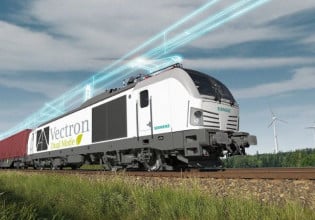FirstEnergy Corp. (Akron, OH), the nation's fourth-largest investor-owned utility, which is currently being investigated as the possible source of the blackout that hit August 14, 2003, sweeping across eight states and parts of Canada, distributed a statement saying that it had failed to notice the line failures because an alarm system designed to alert its operators was not working. Mary Lynn Webster, a spokeswoman for the Midwest Independent Transmission System Operator, the industry group that monitors the flow of power throughout the region, said that during the escalating problems in Ohio, at least three conversations took place between coordinators from that group and FirstEnergy to discuss the line failures. She said tapes of the conversations would be reviewed.
FirstEnergy spokesman Todd Schneider, said that the company was far from ready to say that the precipitating event was the failure of four of its lines and one co-owned by American Electric Power. According to Schneider, three hours earlier there were signs of instability on the grid outside FirstEnergy's service territory. He would not say where they occurred, but said they could have played a role. "There were situations throughout the region that may have contributed to the event, not just these power lines in our system," he said.
Power managers in adjacent parts of the grid, including the Northeast, said they were concerned that there was no early warning, adding that such an alert might have helped them gird for what one official called the eastward-pulsing "shock wave" that triggered the wider failure. Officials from the Northeast insisted that they received no warning from FirstEnergy or the Midwestern power coordinators until it was too late to take preventive measures. Many experts stress, however, that there are ample signs that weaknesses in the grid are not limited to the Midwest. It remains unclear why New York's network collapsed while those further along, like New England's, did not. Experts debated possible explanations such as that New England survived not because its machinery was better, but because it was weaker. Others disagreed, suggesting that New England and some Mid-Atlantic states might have had systems in place that sensed a problem while preventing a full-blown shutdown.






